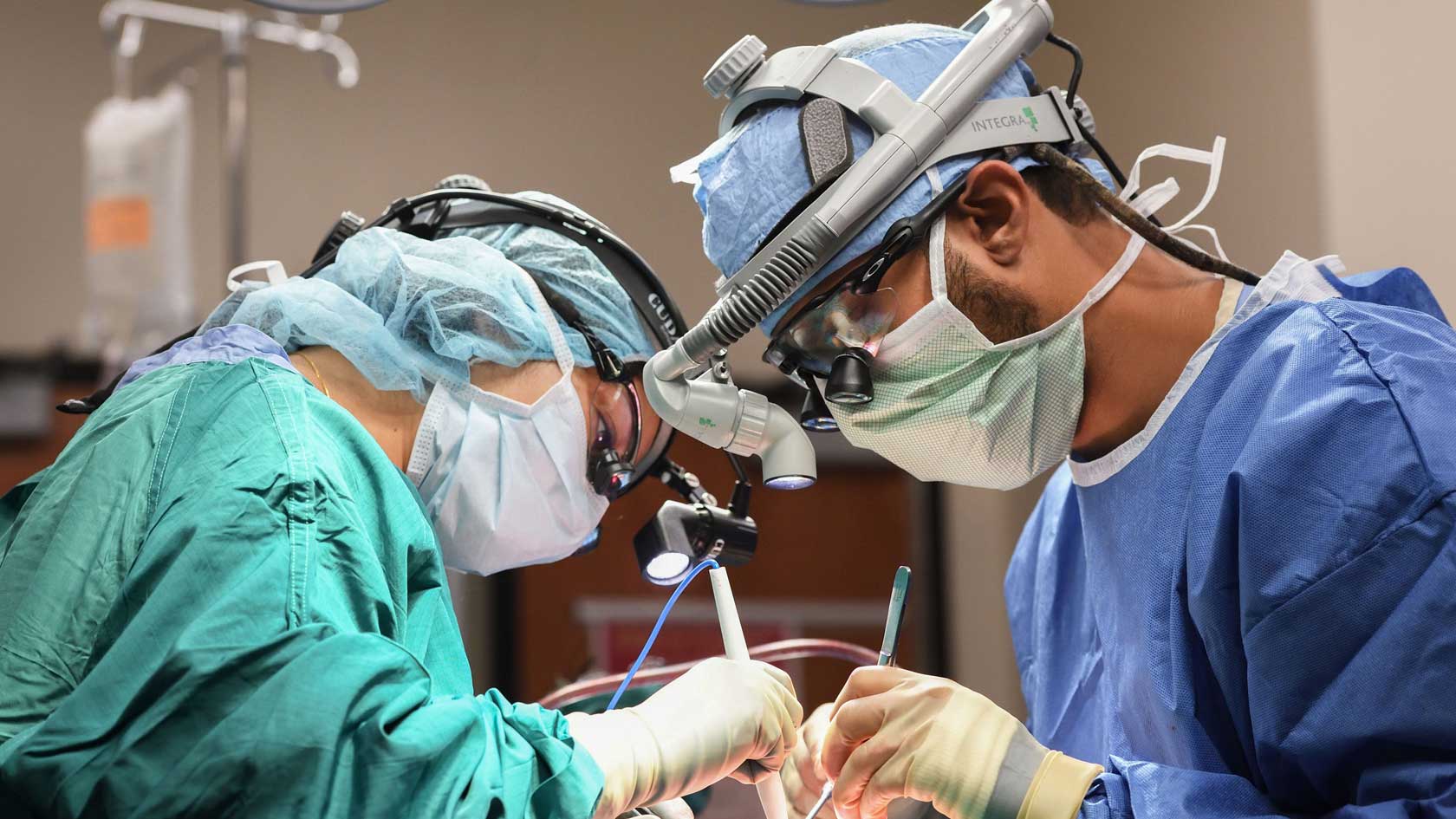Discovering the Field of Otolaryngology: What to Anticipate When You Speak With an ENT
Otolaryngology, commonly referred to as ENT, incorporates the diagnosis and treatment of ear, nose, and throat conditions. For those experiencing associated concerns, speaking with an ENT expert can supply quality and alleviation. Understanding what to anticipate during such examinations is crucial for reliable interaction and care. This introduction will detail crucial aspects of the ENT experience, consisting of typical factors for sees and the processes involved in diagnosis and therapy.

Understanding Otolaryngology: A Review
Otolaryngology, typically referred to as ENT (Nose, throat, and ear) medicine, is a customized branch of medicine that concentrates on the diagnosis and treatment of conditions influencing these vital areas of the human body. This area encompasses a wide variety of disorders, consisting of those related to hearing, balance, respiratory system function, and speech. Otolaryngologists are trained to take care of both medical and clinical treatments, using advanced techniques and technologies. Their know-how expands beyond standard disorders, resolving problems such as allergies, sinus infections, and hearing loss. In addition, they play a crucial function in the monitoring of head and neck cancers cells, giving detailed treatment tailored to individual client requirements. In general, otolaryngology remains important for maintaining health and lifestyle in affected individuals.
Typical Factors to See an ENT Professional
Numerous individuals look for the experience of an ENT professional for a range of reasons, reflecting the varied nature of conditions that influence the ear, nose, and throat. Usual concerns include chronic sinusitis, which frequently causes relentless nasal congestion and face pain. Allergic reactions and their associated signs, such as itching and sneezing, likewise prompt sees to these professionals (ENT). Hearing loss, whether unexpected or gradual, is another significant factor for assessment. In addition, individuals might look for analysis for throat problems, consisting of consistent hoarseness or ingesting difficulties. Sleep apnea, characterized by disturbed breathing during sleep, is often dealt with by ENT professionals as well. Each of these conditions highlights the value of specialized care in handling complex ENT-related health and wellness concerns
Planning for Your ENT Appointment
When planning for an ENT consultation, it is necessary to gather pertinent information and take into consideration any kind of specific issues. People should compile an in-depth medical background, consisting of previous ear, nose, or throat issues, surgical procedures, and existing drugs. Recording signs-- such as duration, frequency, and seriousness-- can give valuable insights for the ENT professional. Additionally, individuals should prepare a list of questions they want to ask, ensuring that all concerns are addressed throughout the visit. Bringing along any pertinent clinical records or test outcomes can additionally assist the ENT in comprehending the individual's problem. Clients should validate their appointment information, consisting of time, date, and area, to minimize any last-minute confusion. Proper preparation can boost the effectiveness of the consultation and result in much better results.
What to Expect Throughout the Appointment
As the assessment starts, the client can anticipate to participate in a complete discussion with the ENT professional regarding their signs and case history. The specialist will certainly ask about the period, regularity, and extent of signs such as hearing loss, nasal congestion, or sore throat. Additionally, the patient's previous medical problems, medications, and any kind of pertinent household history will certainly be evaluated, assisting the professional in forming a total understanding of the person's health and wellness. The ENT might likewise inquire about way of living elements, such as direct exposure to irritants or toxic irritants. This open discussion develops a foundation for the examination, making sure that the person's worries are dealt with and establishing the phase for any kind of needed evaluations or suggestions for therapy.
Analysis Examinations and Procedures in Otolaryngology
A variety of analysis examinations and procedures are important in otolaryngology to properly assess and detect problems impacting the throat, ear, and nose. Typical examinations consist of audiometry, which gauges hearing feature, and tympanometry, examining center ear stress. Nasal endoscopy allows visualization of the nasal passages and sinuses, while laryngoscopy checks out the throat and singing cords. Imaging techniques, such as CT scans and MRIs, offer thorough sights of head and neck structures. Allergy testing may also be carried out to recognize triggers for sinus or respiratory problems. These diagnostic tools make it possible for ENT professionals to develop an extensive understanding of individuals' conditions, guaranteeing tailored and effective management strategies. Correct medical diagnosis is crucial for effective therapy results in otolaryngology.
Treatment Options Supplied by ENT Specialists
ENT specialists use a range of therapy alternatives customized to resolve certain conditions influencing the ear, throat, and nose. These treatments range from conservative strategies, such as medicine and lifestyle modifications, to more intrusive procedures. Allergic reactions may be managed with antihistamines or immunotherapy, while persistent sinus problems might need nasal corticosteroids or sinus surgery. For hearing loss, ENT professionals commonly recommend listening device or surgical interventions like cochlear implants. In instances of throat disorders, alternatives can include speech therapy or medical procedures to get rid of blockages. Additionally, they might provide advice for managing sleep apnea, consisting of the use of CPAP tools or surgical interventions. On the whole, the objective is to improve people' quality of life with individualized care and effective therapy strategies.
When to Look For Follow-Up Care With an ENT
Identifying when to look for follow-up care with an ENT expert is vital for handling recurring symptoms or difficulties associated with ear, throat, and nose conditions. Clients must think go to this site about arranging a follow-up consultation if signs and symptoms persist regardless of initial therapy, such as persistent ear pain, nasal congestion, or throat discomfort. Changes in hearing, equilibrium problems, or uncommon nasal discharge might also call for further evaluation. In addition, if a person experiences negative effects from suggested medicines or has actually undertaken a procedure, follow-up care is necessary to keep track of healing and resolve any worries. Prompt appointments can assure reliable monitoring of conditions, protect against prospective issues, and supply satisfaction pertaining to one's wellness. Seeking follow-up treatment advertises positive wellness monitoring in otolaryngology.
Regularly Asked Concerns

What Credentials Should I Search for in an ENT Professional?
When looking for an ENT specialist, one must search for board certification, relevant experience, and strong client reviews. Additionally, reliable communication skills and a thoughtful technique can greatly boost the overall therapy experience.
Just how Do I Pick the Right ENT for My Demands?
Selecting the right ENT specialist includes evaluating their qualifications, experience, and client testimonials (Hearing). It is vital to contemplate their communication style and approach to therapy, ensuring they line up with the person's specific health needs and preferences
Exist Any Type Of Risks Related To ENT Procedures?
The threats connected with ENT treatments might consist of infection, bleeding, anesthesia issues, and potential damages my website to surrounding structures. Clients must review these risks with their physician to understand individual concerns and warranty educated choices.
Exactly How Can I Take Care Of Anxiety Prior To My ENT Appointment?
To manage stress and anxiety prior to a visit, individuals can exercise deep breathing workouts, visualize favorable outcomes, prepare concerns ahead of time, and seek assistance from good friends or household, cultivating a sense of confidence and peace.
What Should I Do if I Experience Side Effects From Therapy?
If side results from therapy take place, the individual needs to without delay report them to their doctor. Adjustments to therapy or additional treatments may be required to ensure safety and security and efficiency in handling their problem - ENT Clinic. As the examination starts, the individual can expect to involve in a thorough conversation with the ENT expert concerning their signs and clinical background. These analysis tools allow ENT experts to create a detailed understanding of individuals' problems, ensuring tailored and effective management plans. ENT specialists supply a range of therapy choices tailored to attend to certain problems impacting the nose, ear, and throat. When seeking an ENT specialist, one ought to look for board accreditation, relevant experience, and strong client testimonials. Choosing the ideal ENT specialist involves assessing their static sound in ear certifications, experience, and individual testimonials